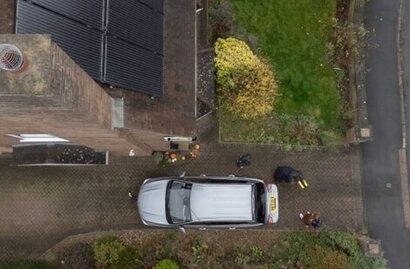
The findings also revealed that more than one in 10 EV drivers also has a home battery to store electricity. The high uptake of solar indicates that nearly a third of EV drivers are able to use the power of the sun to charge at home for free, despite the recent increases to electricity prices by both energy suppliers and public EV charge point operators.
EV drivers are also 20 percent more likely than average to have a smart meter. 72 percent of EV drivers having embraced this critical tech for flexible tariffs, keeping close track of the energy they use and what they share back to the grid, compared to the 50 percent average.
Another piece of clean energy tech EV drivers are seven times as likely as a typical household to have is the heat pump. 7 percent heat their homes with electricity via ground or air source heat pump, much higher than the 1 percent of all UK households.
Corresponding research from Good Energy across all UK households highlights that up-front costs for clean tech is the main hurdle for homeowners. Installation cost was the most commonly cited barrier for people getting heat pumps, solar panels and battery storage – 64 percent, 54 percent and 42 percent respectively.
The clean tech company, which is a major investor in and partner of Zap-Map, plans to help tackle this problem with low-cost financing and bundling with its genuine 100 percent renewable electricity tariffs.
“A gateway to clean energy is a great way of thinking about EVs” said Melanie Shufflebotham, COO and Co-founder of Zap-Map. “As soon as you change the energy you use to fuel your vehicle you start thinking about the energy you use elsewhere in your life. Then you realise you can reduce your running costs with solar panels too. That said the up-front costs of the tech does highlight once again the gap between wealthier homeowners with off-street parking and those without a driveway or are just not as well off. Which is why we need more affordable on-street or local charging options.”
For additional information:

